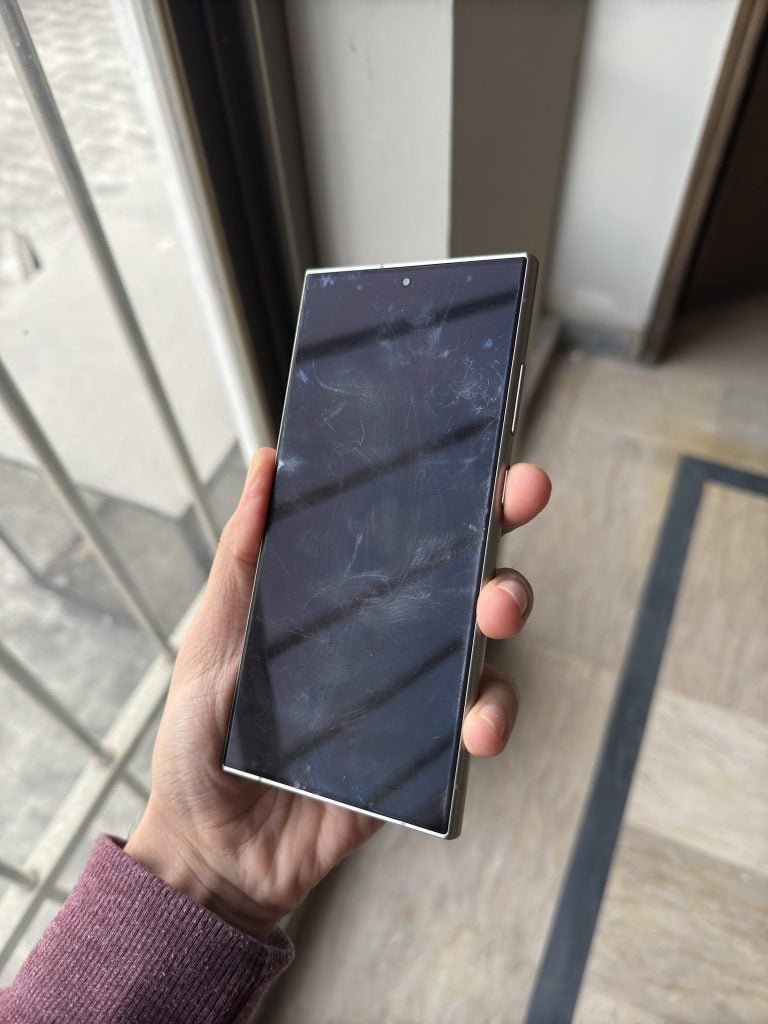The Samsung Galaxy S24 Ultra has gained a lot of attention for its remarkable anti-reflective screen, but now it’s dealing with problems related to that very feature. Just under a year after its launch, users are reporting that the anti-reflective layer is starting to peel off. This is especially noticeable in areas where users frequently scroll and around the edges of the display.
Users Report Coating Issues
Many users are expressing their dissatisfaction, noting that the anti-reflective coating, which helps provide a clear and glare-free viewing experience, is wearing away much earlier than anticipated. One user on X, @xeetechcare, shared pictures showing the coating peeling off the right side of the screen and other spots across the surface. He mentioned that his phone hadn’t been in contact with any objects like keys or coins, which are typical culprits for screen damage. Yet, the marks were still present, and more users began sharing similar experiences, suggesting this might be a common problem.
Susceptibility to Damage
Additional users have posted photos of their devices displaying permanent blemishes caused by the damaged coating. It seems this layer is prone to tiny scratches, likely because it is softer compared to the glass underneath. Hannes Brecher from Notebookcheck pointed out that the coating might be too fragile for everyday usage, which could clarify why so many customers are facing this problem shortly after buying the phone.
No Word from Samsung Yet
At this point, Samsung has not issued any official statements regarding the matter, leaving customers wondering if this screen damage is covered by warranty or if it’s a design flaw affecting a larger batch of Galaxy S24 Ultra phones. Some reports in the Samsung Community mention the ‘oleophobic coating coming off,’ but the company has declined to cover this under warranty, labeling it as normal wear and tear.
For now, users are encouraged to exercise caution with their displays. It’s suggested to clean the screen using only a microfiber cloth and to avoid any cleaning products that might harm the coating further. While a screen protector could provide some defense against damage, it may also make the anti-reflective coating ineffective, forcing users to weigh the choice between protecting their screen and maintaining display quality.
Source: Link




Leave a Reply